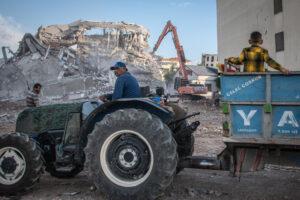In the name of equality
By Khaled Diab
Society is becoming more equal but our surnames – borrowed from fathers and husbands – lag behind. Is there a fairer system?
November 2008
According to Arabic naming practices, my name reveals a fair bit about my family history. In fact, a casual observer can trace my ancestry back three generations – not to mention the nth generation in which the original Diab lived. However, this only applies to my male ancestors. My name keeps a discreet silence when it comes to my female forebears.
In Europe, middle names are generally chosen and, so, often reveal little about intermediate ancestors (unless they are the names of grandparents). Nevertheless, names here still carry the patriarchal seal of the male founder of the family.
It is still common practice, at least in Anglo-Saxon society, for women to adopt their husbands' surnames. And a wife's identity can be so subsumed by her husband's that she takes on his full name, especially in official correspondences or more traditional ceremonies.
Luckily for my wife and I, given our belief in equality, this is not the practice either in Belgium or Egypt, where a woman keeps her maiden name. I don't know if this is a sign of greater equality in this particular aspect, an accident of history, or simply reflects a different patriarchal emphasis, i.e. that of a woman's father rather than her husband.
Nevertheless, children still take on their father's name. Of course, the practice may have originated partly for practical reasons – my wife speculates that it may have started off as a simple acknowledgement of paternity, a way for a man to say to society that I recognise this child as mine, too, and the way for a woman to ensure that he does his share of the caring.
Nevertheless, I find this inherently unfair to the mother. Because I am a Diab, that means I am labelled and pigeon-holed in society's consciousness as belonging to my father's family but not my mother's.
Where is the mother acknowledged in all this? Barack Obama illustrates this conundrum well. Although his father had little role in raising him, the president elect bears his name – whereas his mother and her family get little acknowledgment, in his name, for their far greater role.
Personally, I have previously toyed with the idea of taking on my mother's surname, Khattab, at least informally, in order to acknowledge the greater role she has played in my upbringing and my closer affinity to her family.
Intriguingly, there is a tribe in Indonesia in which, contrary to most of humanity, children's family names follow the matriarchal line. In fact, with a population of up to 7 million, the Minangkabau are the largest group of people to use a matronymic naming system. And it is not only names that are passed down along the mother's line – property, too, is matrilineal. Men's role is to handle affairs of state and religion.
It will probably surprise many to learn that the Minangkabau are ardent Muslims. However, they have striven to preserve their native matriarchal culture and strike a balance between it and Islam's more patriarchal worldview. And this women-friendly society, which reveres the importance of learning, has not done at all badly for itself, over-represented as it is in Indonesia's professional classes and top government offices. Unsurprisingly, the country's first female minister was a Minang.
That said, replacing patronymic names with matronymic ones is still not an ideal solution, since they replace one inequality with another. My wife and I have mused over how children could be named in a way that would be fair to both parents. There's the option of merging family names.
But, here in Belgium, that's no longer possible – apparently it creates confusion regarding people's identity – while, in Egypt, the bureaucracy is so rigid as to rule out such flexibility. Besides, given their profusion among the aristocracy, double-barrelled names carry a certain pomposity that can be lived without.
Another option is to give alternate children alternate surnames. The drawbacks are that you need to have at least two kids and, ideally, an even number of sprogs. It would also prove confusing to outsiders, particularly the authorities, in terms of ascertaining parent-child and child-child relations – which could actually be rather entertaining.
It seems there is no easy way to make naming practices egalitarian (i.e. both patronymic and matronymic) without each of us being given a name as along as the Channel Tunnel. But is showing lineage really that important, at least when we become adults? Perhaps the only truly fair solution is to let everyone invent or choose their own surname when they come of age. That way, we'll be celebrating the individual and sending out a message that family is a private affair.
This column appeared in The Guardian Unlimited's Comment is Free section on 16 November 2008. Read the related discussion.


